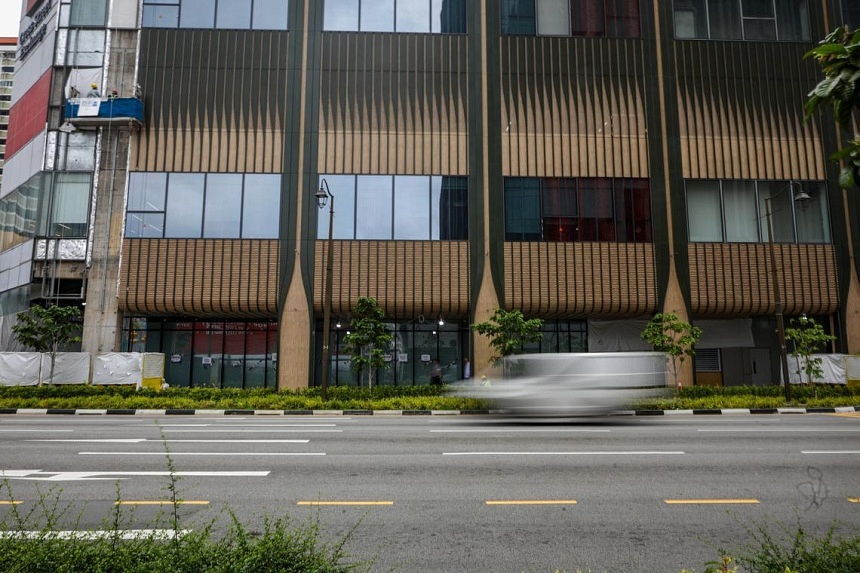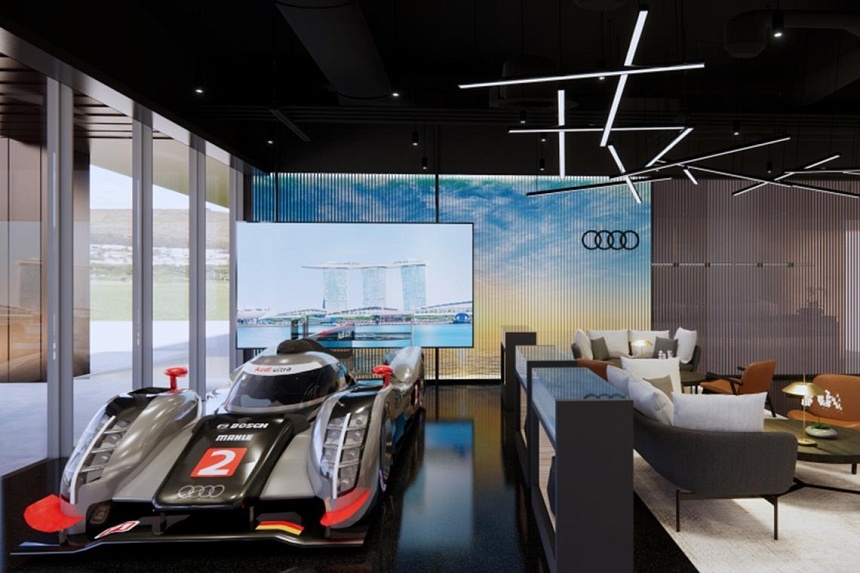SINGAPORE – By the end of 2024, people shopping for a new Audi car here can buy one online or by visiting a new showroom near Chinatown.
The current showroom in Alexandra Road, operated by agent Premium Automobiles, will stop selling Audi cars when its stock runs out. But the agent will continue to provide after-sales support.
The new Audi Singapore showroom, which will be ready by the end of the year, is on the ground floor of Cross Street Exchange, a mall at the junction of South Bridge Road and Cross Street, The Straits Times has learnt.
The German carmaker’s online platform, which will be ready by November, allows a buyer to complete sales transactions as well as find out about stock availability, finance, insurance and used car trade-in.
The development means that Audi will sell new cars directly to customers in Singapore and not through Premium Automobiles’ Alexandra premises.
Thus, Audi will no longer be represented in an area where the major car brand showrooms are located.
It follows fellow German brand, Porsche, which ended its arrangement in 2023 with its dealer and now sells cars directly to consumers.
Audi Singapore is a direct subsidiary of the German car brand, and Premium Automobiles has been the brand’s local representative since 1999.
The majority of cars sold in Singapore are sold through authorised dealership arrangements.
Customer test drives and in-person consultation will be conducted at Audi’s new showroom, which will also serve as an event space for exhibitions. It was still under renovation when ST visited it on Sept 6.
Meanwhile, Audi Singapore will hold roadshows at shopping malls and other activities. This includes one at Suntec City, which is running until Sept 8.
In a phone interview, Audi Singapore managing director Markus Schuster told ST that Premium Automobiles will continue to provide after-sales functions, which include maintenance and repairs for existing cars and new ones bought through the new set-up.
The preparation of a new car before it is delivered to the customer will also continue to be handled by Premium Automobiles.
Mr Schuster said the project is an initiative of the Singapore office, done in consultation with Audi headquarters in Germany.
“If we are successful, we are happy to roll this out to other markets,” he added.

The company saw how consumers were moving between physical and digital experiences when shopping, and wanted to be able to serve this need seamlessly by taking over the retail operation.
“We want to have no breaks during our customers’ purchase journeys,” said Mr Schuster, who has been heading Audi Singapore since 2019.
Planning for the transition started in 2022, according to Mr Schuster, although news of staff recruitment for the set-up surfaced only in July.
Singapore is the first market where Audi is doing business this way. In Germany, only selected models can be bought directly from the brand, with its other models being sold by independent dealers.
Currently, Porsche and Tesla are selling cars directly to consumers in Singapore.
While US electric vehicle brand Tesla has been performing strongly since 2021, car registration data from the Land Transport Authority shows that Porsche’s sales have yet to match its previous dealer’s sales numbers, before the German sports carmaker started selling to consumers directly in 2023.
Porsche opened a showroom at Guoco Midtown in Beach Road in January.
Unlike Tesla, where the entire purchase process can be completed on its website, Porsche’s online portal takes reservations only.
A follow-up meeting with a sales consultant is needed to complete the deal.

While car registrations across the board have fallen in recent years because of fewer certificates of entitlement (COEs) being available for bidding, Audi has lost more ground than other premium German brands like BMW.
In 2023, it registered 678 cars, down 17.4 per cent from 821 in 2022, while BMW dipped 6.8 per cent to 3,379 from 3,626 units for the same period.
Audi also slipped to the 11th spot in terms of car sales in 2023, from being eighth in 2022 and sixth in 2021.
Faltering sales numbers have been fuelling rumours among motor traders that Audi Singapore might be parting ways with Premium Automobiles.
Mr Schuster said the new set-up is timed to capitalise on the anticipated increase in COE supply in the next few years.
Audi also plans to introduce a number of new models over the next two years to renew its ageing portfolio.
By the time the new showroom is ready, Audi expects to have the new Q6 e-tron, a mid-sized electric sport utility vehicle (SUV), ready for sale.
Models lined up for 2025 and 2026 include three key internal combustion engine offerings – the updated A3, which is a compact sedan, the new A5, which replaces the popular A4 model plate, and a new Q5 SUV on the horizon.

When asked to comment on Audi’s initiative, automotive industry consultant Say Kwee Neng said that sales performance will ultimately prove if the new approach works.
He added: “They may have a new way to spread the jam, but the toast is always the same.”
Mr Say, who has spent 24 years in the motor industry and runs his own consultancy, said that having fresh and competitive products to pit against its rivals will definitely help Audi’s progress here.
But he warns of the challenges a car company faces in running its own retail operation. This includes the cost of holding stock and dealing directly with customer feedback. “Audi has to own these issues now and cannot pass them on to a dealer,” he said.
Mr Say is looking forward to seeing how consumers take to buying an Audi online. He noted that unlike Tesla, which is a unique brand without real contenders, Audi’s products are measured against strong rivals like BMW and Mercedes-Benz.
Audi’s Mr Schuster would not be drawn into giving sales projections for the new set-up, saying only that with more new products, it is natural to expect that it would be selling more cars in the coming years.
“Sales volume is not the only key performance indicator for us. We also need to be profitable and deliver an outstanding customer experience,” he added.


